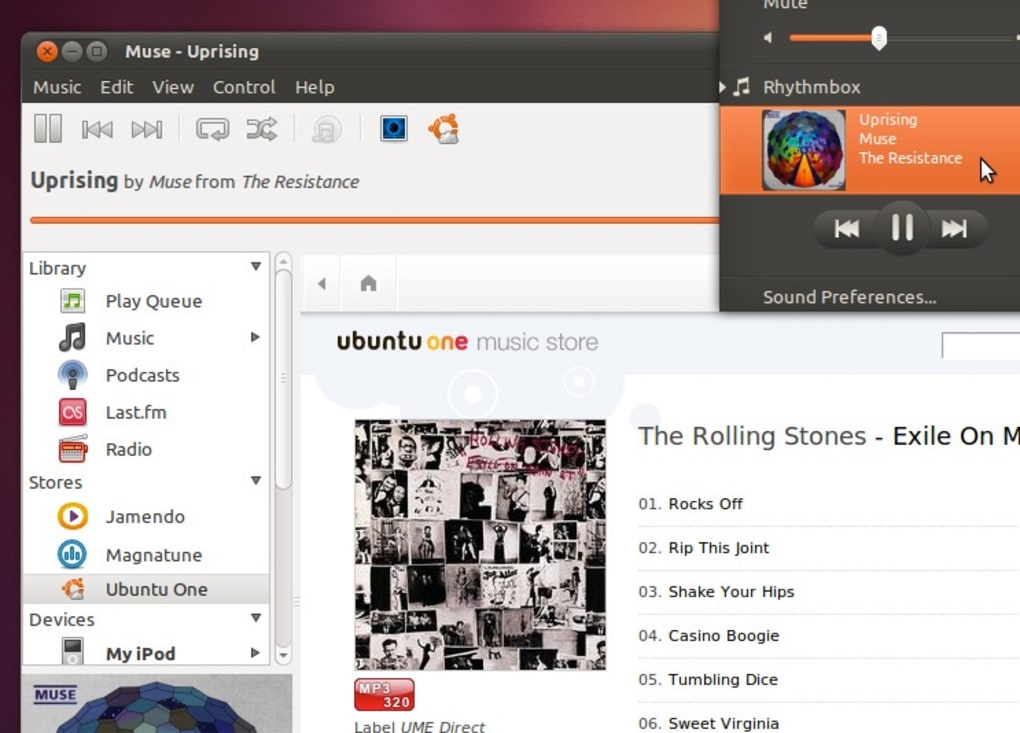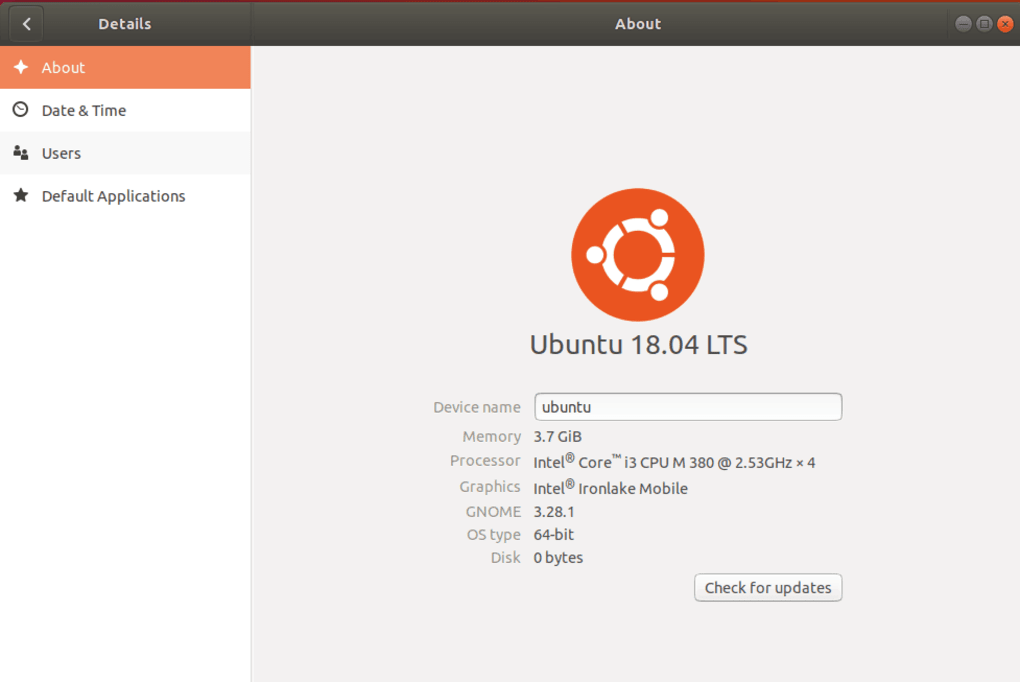Ubuntu, a prominent member of the Linux family, has carved a significant niche in the operating system landscape. Its appeal stems from a potent combination of factors: it’s free, open-source, remarkably user-friendly, and backed by a vibrant and supportive community. This exploration delves into the intricacies of Ubuntu, examining its features, advantages, disadvantages, target audience, and overall place within the broader computing ecosystem.
The Allure of Ubuntu: A Free and Open-Source Alternative
In a world dominated by proprietary operating systems with hefty price tags, Ubuntu emerges as a refreshing alternative. Its completely free and open-source nature is its most compelling asset. This means users can download, use, modify, and distribute it without any licensing fees. This accessibility democratizes computing, making powerful technology readily available to everyone, regardless of financial constraints. The open-source ethos also fosters a collaborative development environment where a global community contributes to its continuous improvement and expansion.

This core philosophy extends to the vast software repository available through the Ubuntu Software Center. This repository hosts a diverse collection of free applications and games, providing a rich ecosystem that rivals, and in some areas surpasses, the offerings of proprietary systems. The availability of applications like LibreOffice (a powerful and feature-rich alternative to Microsoft Office), Firefox (a secure and widely used web browser), and numerous other utilities ensures that users aren’t limited in their computing experience.
Ubuntu’s Key Features and Capabilities
Ubuntu’s success isn’t solely attributed to its price point; its rich feature set contributes significantly to its popularity. Here’s a breakdown of its key characteristics:

-
Free and Open Source: The cornerstone of Ubuntu’s appeal, this attribute removes financial barriers and empowers users with the freedom to customize and modify the system as needed.
-
Extensive Application Repository: The Ubuntu Software Center offers a vast and continuously expanding library of free software, covering a wide range of needs, from productivity applications and multimedia tools to games and development environments.
-
User-Friendly Interface: Ubuntu boasts an intuitive graphical user interface (GUI) that mirrors the familiar structure of other popular operating systems. This ease of use makes it accessible to both novice and experienced users, minimizing the learning curve for newcomers. Sidebar icons and familiar window management systems make navigation intuitive and efficient.
-
Comprehensive Standard Installation: A standard Ubuntu installation includes a suite of essential tools, including LibreOffice for document creation and editing, Firefox for web browsing, and various utilities for system management. This means users have access to the necessary software out-of-the-box, minimizing the need for immediate additional downloads.
-
Excellent Hardware Compatibility: Ubuntu prides itself on its robust hardware compatibility. It offers built-in support for a wide array of components, including graphics cards, Wi-Fi adapters, printers, and other peripherals. This reduces the likelihood of encountering compatibility issues after installation, ensuring a smooth user experience.
-
Stability and Reliability: Based on the Linux kernel, Ubuntu is known for its stability and reliability. Compared to some other operating systems, it’s less prone to crashes and system errors. This stability is crucial for users who need a consistent and dependable computing environment.
-
Strong Community Support: Ubuntu boasts a large and active community of users and developers. This vibrant ecosystem provides ample resources for troubleshooting, learning, and getting support when needed. Forums, wikis, and other community channels offer assistance to users of all skill levels.
-
Wine Compatibility: While Ubuntu is designed around Linux applications, it leverages Wine, an open-source compatibility layer, to run a growing number of Windows applications. While not perfect, Wine allows users to access a wider range of software, bridging the gap between the Linux and Windows worlds.
Ubuntu System Requirements and Considerations
While Ubuntu is remarkably versatile, it does have system requirements. For an optimal experience, the following specifications are recommended:
- Processor: A 2 GHz dual-core processor or better.
- Memory (RAM): 4 GB of system memory.
- Hard Drive Space: 25 GB of free hard drive space.
- Internet Access: While not strictly necessary for installation, internet access is highly recommended for software updates, downloading applications, and accessing online resources.
- Installer Media: A DVD drive or a USB port for installing Ubuntu from an installation media.
These requirements are relatively modest, making Ubuntu accessible to a broad range of computer users.
Why Choose Ubuntu? A Comparative Analysis
Ubuntu’s advantages extend beyond its free and open-source nature. Let’s delve into why it’s a compelling alternative to other operating systems, particularly Windows:
Ubuntu’s Strengths:
- Cost-Effectiveness: The most obvious advantage is the absence of licensing fees. This makes it a budget-friendly option for individuals and organizations.
-
Customization: The open-source nature of Ubuntu allows for extensive customization. Users can tailor the system to their specific needs and preferences, modifying settings, themes, and even the core functionality (for those with the technical expertise).
-
Enhanced Security: The Linux kernel, upon which Ubuntu is built, is generally considered more secure than Windows. It’s less frequently targeted by malware due to its smaller market share, resulting in fewer vulnerabilities.
-
Resource Efficiency: Ubuntu often requires fewer system resources than Windows, allowing it to run smoothly on older or less powerful hardware.
-
Community-Driven Innovation: The active community constantly contributes to Ubuntu’s development, leading to rapid improvements, bug fixes, and new features.
Windows’ Strengths:
-
Software Compatibility: Windows boasts unparalleled software compatibility. A vast majority of commercially available software is designed for Windows, offering greater choice for users.
-
Familiarity: Many users are already familiar with the Windows interface, reducing the learning curve.
Ubuntu vs. Windows: A Balanced Perspective
While Ubuntu offers significant advantages in terms of cost, customization, and security, Windows retains its strength in software compatibility and user familiarity. The “better” operating system depends entirely on individual needs and priorities.
Security: Ubuntu vs. Windows
The question of security is often raised when comparing operating systems. Generally, Ubuntu is considered more secure than Windows due to its smaller user base and the inherent security architecture of the Linux kernel. It’s a less frequent target for malware and viruses. However, both operating systems release regular security updates, and staying updated is crucial for both. Ubuntu’s open-source nature also contributes to a faster response time to security vulnerabilities, as the community promptly identifies and addresses them.
Who Should Use Ubuntu?
Ubuntu is an excellent choice for several user groups:
-
Tech Enthusiasts: Users who appreciate the freedom to customize and modify their operating system will find Ubuntu particularly appealing.
-
Developers: The open-source nature and extensive development tools available in Ubuntu make it a popular choice among software developers.
-
Budget-Conscious Users: The free-of-charge nature of Ubuntu is a significant benefit for users who want to avoid licensing costs.
-
Users Seeking Enhanced Security: Those who prioritize security and privacy will find Ubuntu’s Linux-based security architecture to be a strong advantage.
Conclusion: Embracing the Ubuntu Experience
Ubuntu stands as a compelling alternative to proprietary operating systems. Its combination of free and open-source nature, user-friendly interface, extensive software repository, and strong community support makes it a powerful and accessible option. While it might not be the perfect solution for every user, especially those reliant on specific Windows-only software, it’s a worthy consideration for anyone seeking a cost-effective, customizable, and secure computing experience. The decision ultimately rests on individual needs and priorities, but for many, Ubuntu presents a compelling pathway into a world of limitless computing possibilities.
File Information
- License: “Free”
- Latest update: “February 5, 2025”
- Platform: “Windows”
- OS: “Windows 7”
- Language: “English”
- Downloads: “707.6K”
- Size: “4.93 GB”
















